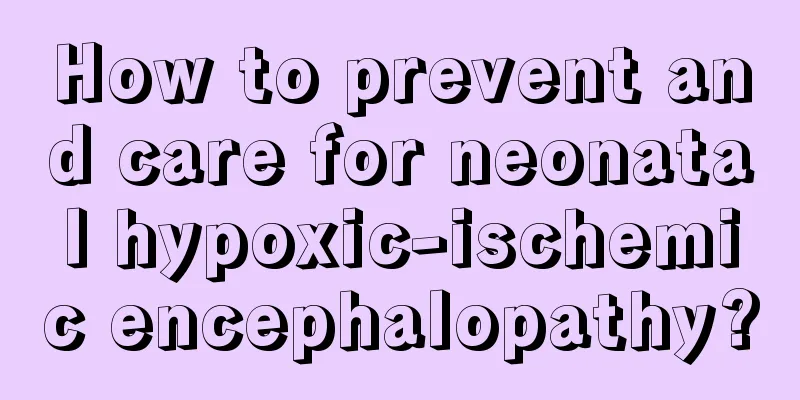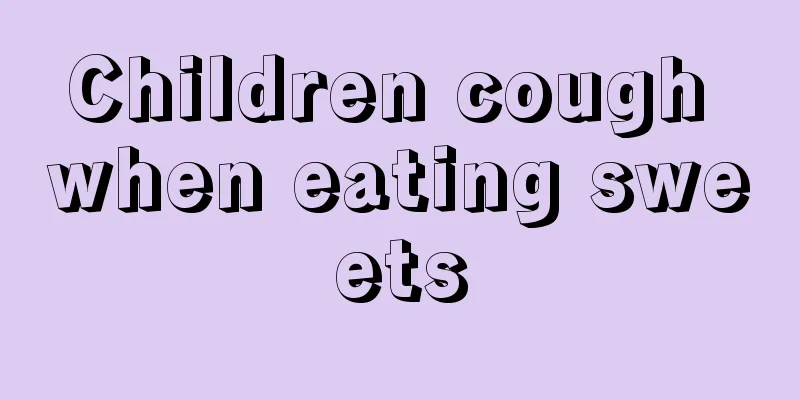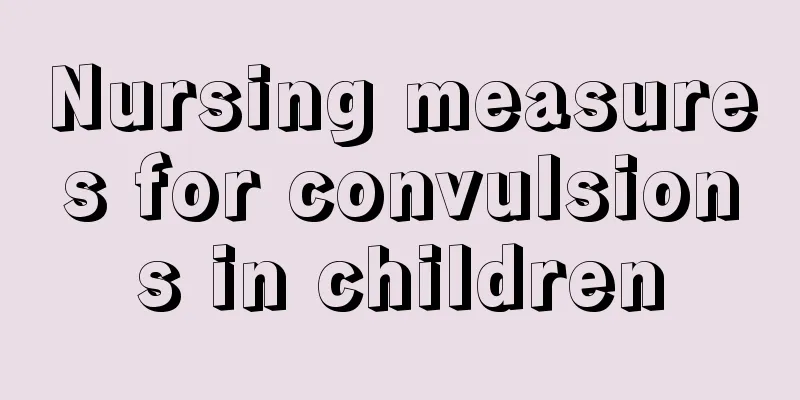How to prevent and care for neonatal hypoxic-ischemic encephalopathy?

|
Newborns are affected by many adverse factors at birth and will develop neonatal diseases, which may even lead to death in severe cases. Among these diseases, the more serious one is neonatal hypoxic-ischemic encephalopathy. When the newborn suffers from hypoxia and ischemia, the brain will be stimulated, which is an extremely adverse phenomenon. After the child is born, this aspect should be diagnosed so that the best treatment and care can be given after the diagnosis is confirmed. Prevention should be carried out before the child is born. So how to prevent and care for neonatal hypoxic-ischemic encephalopathy? 1. Prevention of asphyxia is more important than treatment. All causes of neonatal asphyxia can lead to this disease. The key points for prevention are the same as those for neonatal asphyxia. Pregnant women should have regular prenatal check-ups, and high-risk pregnancies should be dealt with promptly to avoid premature birth and surgical delivery; obstetric techniques should be improved; fetal heart rate monitoring should be performed during delivery for high-risk pregnancies to detect fetal intrauterine distress early and deal with it; during delivery, after the fetal head is delivered, the mouth and nose mucus should be squeezed out immediately, and after birth, the oral, nasal, and pharyngeal secretions should be squeezed out or sucked out again, and all preparations for neonatal resuscitation should be made. 2. Resuscitation and timely oxygen supply: Once fetal distress is detected, oxygen should be provided to the mother immediately, and preparations should be made for resuscitation and oxygen supply to the newborn. After birth, the baby should be laid flat with the head slightly elevated and minimally disturbed. (1) Oxygen supply: Various oxygen supply methods are selected according to the patient's condition to maintain blood oxygen PaO2 above 6.6-9.31 kPa (50-70 mmHg) and PaCO2 below 5.32 kPa (40 mmHg). However, it is important to prevent PaCO2 from being too low to avoid reduced cerebral blood flow. (2) Maintain cerebral blood perfusion: Maintain normal blood pressure and avoid excessive fluctuations in blood pressure to keep cerebral blood perfusion stable. When blood pressure is low, dopamine [continuous intravenous drip of 3 to 10 μg/(kg·min)] and dobutamine [continuous intravenous drip of 3 to 10 μg/(kg·min)] can be used, and blood pressure can be monitored. (3) Correction of metabolic disorders: Mild acidosis and respiratory acidosis can be corrected after improving ventilation. Sodium bicarbonate is only used in moderate to severe metabolic acidosis. The dosage should not be too large to maintain blood pH at 7.3-7.4. In case of hypotension, intravenous drip of 10% glucose was used, with the first dose being 2 ml/kg and the subsequent doses being 5 ml/(kg·h) to maintain blood sugar at 2.80-5.04 mmol/L (50-90 ml/dl). Because endorphins increase after asphyxia, some people have tried using naloxone (naloxone) intravenous drip 5-10μg/(kg·h), up to a total amount of 0.1mg/(kg·d) to antagonize endorphins. (4) Control of convulsions: A loading dose of 15-20 mg/kg of phenobarbital can be given by intravenous drip, followed by a maintenance dose of 3-5 mg/(kg·d) after 12 hours. (5) Control cerebral edema: control the amount of fluid intake to 60-80 ml/(kg·d). Mannitol can be used as a dehydrating agent, but the dehydrating agent should not be excessive. Although dehydrating agents can reduce cerebral edema, they cannot reduce brain damage. How to prevent and care for neonatal hypoxic-ischemic encephalopathy? The care that patients need to do focuses on medical treatment. The situation of newborns is very special, and treatment is also carried out in the company of professional doctors. There will also be nurses to provide care, but there is less care from parents. After the disease occurs, the newborn's brain is greatly stimulated, and other complications are likely to occur. The damage to the brain will affect the future brain development and intelligence. |
<<: How to correct children's picky eating?
>>: What are the harms of excessive exercise to children's health?
Recommend
Diet therapy for bronchial asthma in children, seven foods are worth recommending
If a disease like bronchial asthma occurs in a ch...
Developmental indicators of a two-year-old and nine-month-old baby
During the process of children's growth, pare...
What to do if a newborn has transparent blisters
The physical fitness of newborns is relatively po...
What to do if your six-month-old baby has pneumonia
Pneumonia affects certain age groups. No matter w...
What should I do if my child gets a bump on his head after falling?
After children learn to walk, they often play and...
Why does my baby cry in the middle of the night?
Every child is the hope of the family. While brin...
What are the symptoms of high lead levels in children?
If the lead content in children's bodies exce...
Is it normal for a four month old baby to spit bubbles?
Is it normal for babies to spit bubbles? Nowadays...
The best ointment for baby scars
Babies are always naughty, so the chances of them...
What to eat to help children grow taller_What foods help grow taller
If parents want their children to grow taller, th...
What to do if your child has blisters in his mouth
If a child has blisters in his mouth, it should b...
What are the symptoms of zinc deficiency in children?
Parents are very concerned about their children&#...
What are the dangers of tonsillectomy?
Tonsils are an organ that is very helpful for us ...
How to make cheese for baby food
Some babies like to eat cheese when they are youn...
Can nine-month-old babies eat kiwis?
Parents are very concerned about the baby's e...









